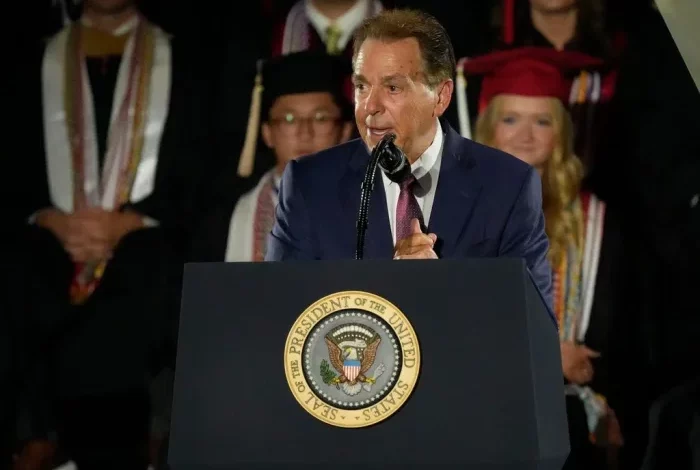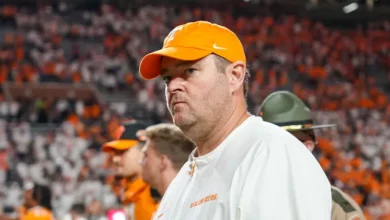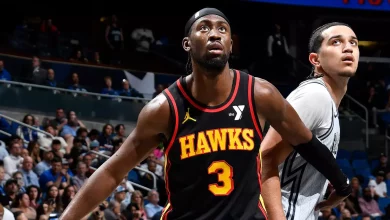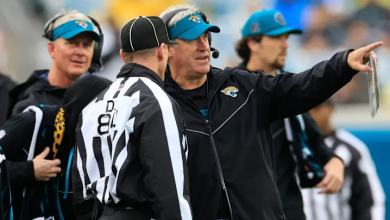Nick Saban sends strong message on President Donald Trump’s idea to help manage the future of college football

Nick Saban sends strong message on President Donald Trump’s idea to help manage the future of college football
Former Alabama Crimson Tide head coach Nick Saban has experienced more success leading a college football program than perhaps anyone else in history.
Recently, Saban made headlines after President Donald Trump named him as a potential member of a commission on college sports that the president hopes to establish.
However, Saban has expressed some hesitation about the idea. He stepped away from the college football world just as the NIL (Name, Image, and Likeness) era and the transfer portal began to take off—making his involvement in shaping the sport’s future particularly interesting.
Nick Saban answers back at Donal Trump’s idea
“First of all, I don’t know a lot about the commission. Secondly, I’m not sure we really need a commission,” Saban said on The Paul Finebaum Show. “I think a lot of people know exactly what the issues are in college football and exactly what we need to do to fix them. The key to the drill is getting people together to move it forward.
“I’m not opposed to players making money—I don’t want anybody to think that. I just think the system that we use, the way it’s going right now, it is not sustainable and probably not in the best interest of the student-athletes across the board or the game itself.”
We are currently in one of the wildest eras in the history of college football. Super teams are largely becoming a thing of the past—aside from programs like Ohio State last year, which managed to return a significant number of draft-eligible players. With NIL, money is being spread around more evenly. While top programs still attract elite talent, we’re beginning to see that talent distributed more widely across the country.
In 2000, Nick Saban did not publicly comment on President Donald Trump’s ideas to help manage the future of college football, as Trump did not make such proposals during that time and Saban was focused on his coaching career at LSU, before taking the Alabama job in 2007. However, if hypothetically Saban were to respond to such a situation, he would likely emphasize the importance of maintaining the integrity, tradition, and competitive balance of college football, advocating for solutions that prioritize student-athlete welfare, fair play, and the long-term stability of the sport. Saban’s typical stance revolves around respecting the sport’s foundational values while also being pragmatic about innovations or management changes that could impact the game’s competitiveness and educational mission.
Given Nick Saban’s well-documented commitment to the core principles of college football—such as player development, academic integrity, and the importance of maintaining a level playing field—his response to President Donald Trump’s ideas to help manage the future of college football would likely emphasize a balanced approach that respects the sport’s traditions while embracing necessary reforms. Saban might stress the importance of collaborative efforts between NCAA leadership, university administrators, coaches, and players to craft policies that promote fairness, safety, and the educational mission of college athletics. He would probably caution against any drastic changes driven by political influence that could undermine the sport’s integrity or place undue burdens on student-athletes. Ultimately, Saban would advocate for thoughtful, strategic management that preserves the competitive spirit of college football while adapting to the evolving landscape of college athletics, ensuring the sport continues to thrive for future generations.
Furthermore, Saban would likely highlight the importance of maintaining the amateur status of college athletes and ensuring that any management strategies prioritize their well-being, both academically and physically. He might express concern that political interference could lead to decisions that favor short-term gains over long-term sustainability, urging a focus on policies that foster player safety, fair compensation, and equitable competition. Saban would probably advocate for a collaborative approach that includes coaches, players, and institutional leaders to develop solutions that uphold the sport’s values and ensure its growth without compromising its integrity. In essence, his message would underscore the need for responsible leadership, transparency, and a shared commitment to preserving the educational and competitive essence of college football amidst any proposed reforms or management changes.









